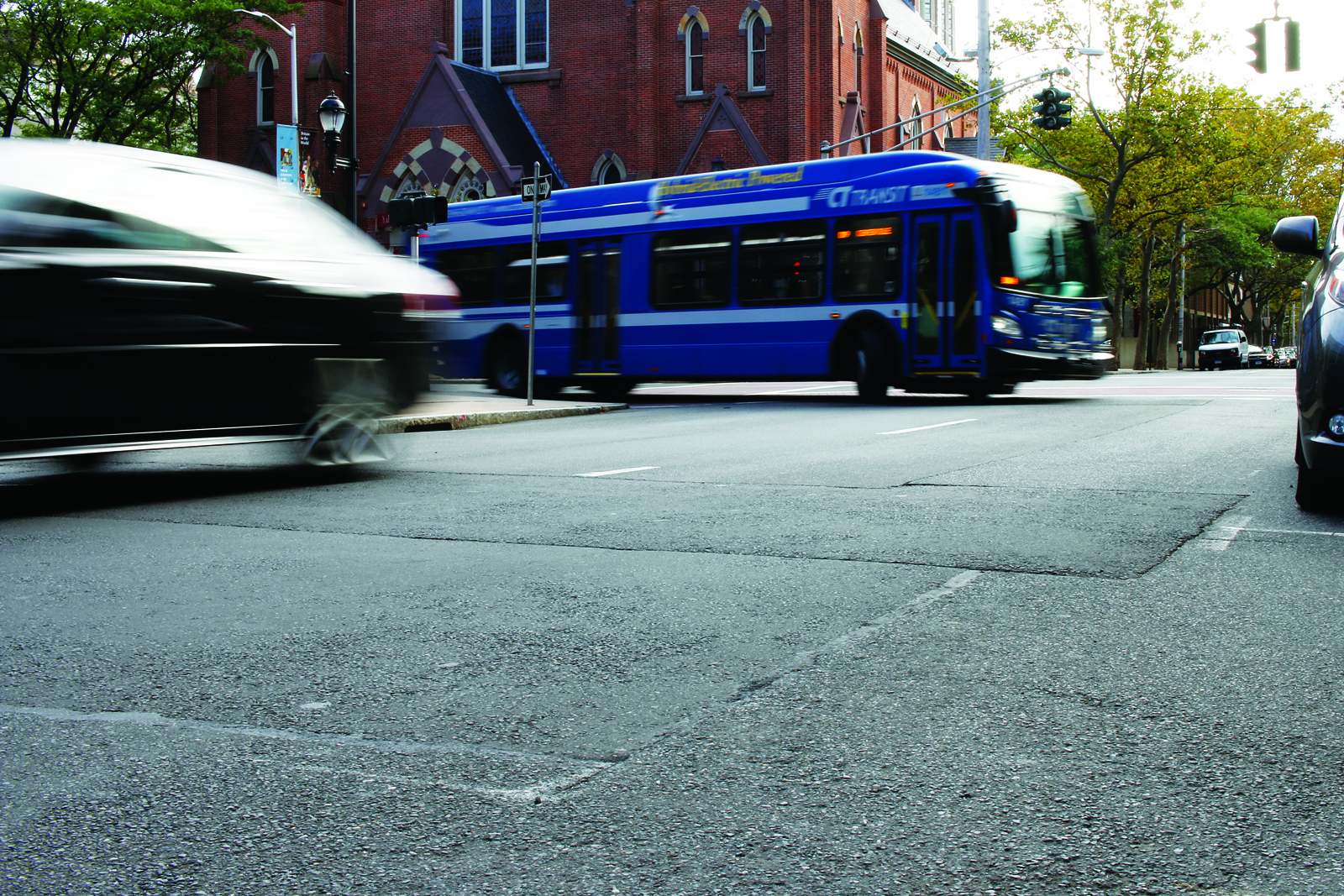
President Donald Trump’s $1.5 trillion infrastructure plan relies heavily on private capital, raising serious questions for financially troubled states like Connecticut.
The White House’s proposed budget — which was released on Monday — includes $200 billion in federal funding for infrastructure over the next 10 years, leaving the remaining money to be collected from state governments and private firms. This ratio of private to public dollars — in which private and local government funds account for a combined 80 percent of the bill — represents a departure from current policies, under which the federal government typically covers the bulk of the infrastructure burden.
“We need an investment plan that is real, not magical thinking,” said Sen. Richard Blumenthal LAW ’73, D-Conn., at a press conference on Monday. “We are in danger of becoming the first generation to leave a lesser America for our children in terms of roads, bridges, airports and ports.”
Connecticut’s Democratic delegates have rejected Trump’s plan in favor of one that invests $1 trillion in federal funds into construction projects. But both plans face considerable opposition in a divided legislature: Trump’s budget proposal will need Democrat votes to pass the Senate, while the Democrat plan would have to make it through a GOP-controlled Congress.
Concerns about Trump’s infrastructure plan extend across party lines. State Sen. Toni Boucher, R-Wilton, who co-chairs Connecticut’s Transportation Committee, highlighted the implications of privatization on civilian lives, saying it generally results in increased tolls on highways. As an example, she pointed to the privately managed Indiana Toll Road, where fares doubled last June after state subsidies were halted.
“Can vulnerable populations with low income and part-time jobs afford privatized fares?” Boucher asked, in an interview with the News.
Still, not all observers are equally pessimistic. Joe McGee, vice president for the Fairfield County Business Council, believes there is reason to hope that the infrastructure plan could be a success. He said he sympathizes with the “initial skepticism” about the plan, noting that public-private partnerships have a well-deserved reputation of resulting in “very poorly constructed contracts skewed in favor of private investors.” But, McGee said, times have changed. And states under financial stress like Connecticut, he said, private investment is critical to improving infrastructure.
“We need to be more creative than resorting repeatedly to state debt and increasing taxes,” McGee said.
Connecticut is certainly in need of a boost to its infrastructure. The Special Transportation Fund, which provides state funding to support highway, bus and rail operations, is nearing bankruptcy. According to Judd Everhart, spokesperson for the Department of Transportation, the state will have to suspend construction projects worth $4.3 billion if the fund fails to revive itself. The project suspension amounts to a reduction of more than 40 percent of planned capital investments.
Meanwhile, the state’s highways and rails continue to age. According to the American Society of Civil Engineers, 57 percent of Connecticut’s roadways are in poor condition, and 78 percent of its bridges are rated below good condition.
McGee emphasized the need for interstate cooperation, suggesting that the state pursue a joint project with New York to expand the MetroNorth line so passengers can reach Manhattan in a half hour from Connecticut.
According to state reports, the average driver in Fairfield and New Haven counties spends 40 hours a year stuck in traffic.
Nicole Ahn | sebin.ahn@yale.edu







